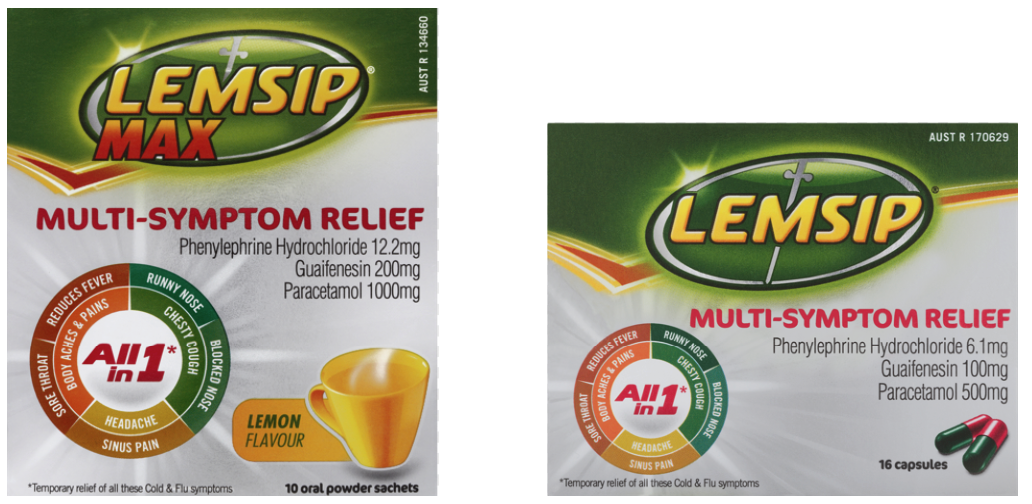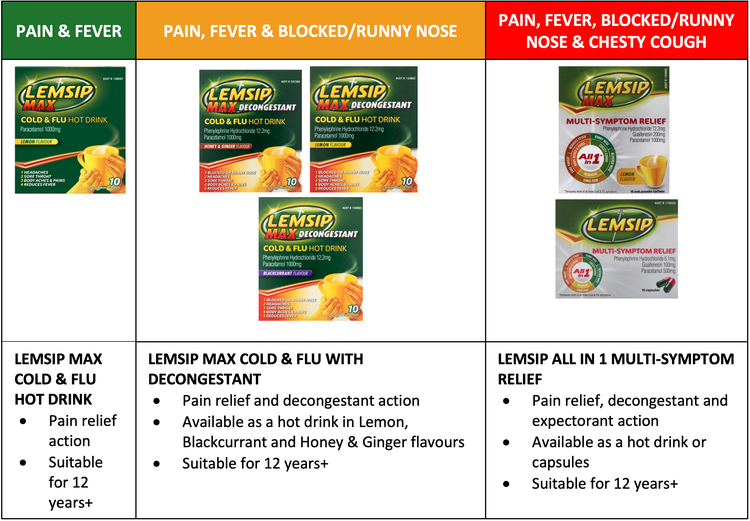However, you should see your doctor if:1,3,6
You’ve had a persistent cough lasting more than 3 weeks

Your cough is troubling you or gets worse

You’re pregnant

You feel very unwell

You’re immunocompromised

You’re losing weight for no reason

A cough can occur for a number of reasons including upper respiratory tract infections (URTIs).1
Read on for some of the cough-related information you need: causes, symptoms, and some cough natural remedies you can try to help ease them.
A cough is a normal reflex action used to clear away foreign particles irritating the airway.7
It may surprise you to know that coughing is a rather complex process, involving the nervous system (including your brain), the lungs, and abdominal muscles.2,8
A cough reflex starts when cough receptors in the throat and airways are triggered.2,8 This sends a message to the brain for the lungs to take a deep breath, and then forcefully expel the air (with the help of the abdominal muscles).2,8
People can experience a short-term cough from a URTI viral infection – a short term or acute cough is one which usually lasts less than three weeks.16
If a cough that lasts more than 8 weeks, this is known as a chronic cough.16 A chronic cough may be caused by an underlying condition, or if the cough reflex becomes overly sensitised.1
If you develop a cough and your symptoms worry you, see your doctor for advice.1
A non-productive cough, also known as a ‘dry cough’, does not produce any phlegm or mucus.1 For some people this type of cough can be disruptive, impacting things like sleep which can leave you feeling exhausted. 4,10 This type of cough is usually caused by inflammation in the nose, throat, voice box (larynx) and trachea areas, which stimulate the cough reflex.4
A cough may develop during recovery from an URTI due to the increased sensitivity of the airways.2 This is called a ‘post-infectious cough’, and is likely related to the damage caused by the URTI.2 A post-infectious cough can last for 3–8 weeks after an URTI.11
If you have a persistent cough, you should see your doctor to make sure you get the right treatment.1 Since most short-term coughs are due to a viral infection, they may resolve on their own.16 But if you need a helping hand, here are some cough natural remedies and tips on what to take for a cough:
However, you should see your doctor if:1,3,6
You should seek urgent medical assistance if:1,3,6
Additionally, you should see a doctor if your child has a cough with a fever, a reduced thirst or any of the above characteristics.1 You should also seek medical help if your child’s cough appears suddenly, lasts longer than two weeks, and/or they appear lethargic and unwell.1
For relief from multiple symptoms including chesty cough, try Lemsip All in 1 Multi-Symptom Relief hot drink or capsules. These products have added guaifenesin which may help relieve a cough and are available as convenient capsules or as a hot drink to also help relieve your sore throat.16,18
Lemsip has a range of over-the-counter relief products, designed specifically for the symptoms you are experiencing:
You can pick Lemsip products up from your local pharmacy or supermarket. Talk to your pharmacist about which product is best for you.
[Disclaimer]
This article is for general information only and not intended as a substitute for medical advice. All information presented on these web pages is not meant to diagnose or prescribe. In all health-related matters, always consult your healthcare professional.
[AU Mandatories]
Always read the label and follow the directions for use. Incorrect use could be harmful. RKT-M-01557.
References:
1. HealthDirect. Cough. Available at: https://www.healthdirect.gov.au/cough. Accessed September 08, 2022
2. Sharma S, et al. Cough. (Updated 2020 Feb 14). In: StatPearls (Internet). Treasure Island (FL): StatPearls Publishing; Available from: https://www.ncbi.nlm.nih.gov/books/NBK493221/; Accessed May 17, 2020.
3. Irwin RS, et al. Classification of cough as a symptom in adults and management algorithms. CHEST guideline and expert panel report. Chest 2018;153(1):196-209.
4. Eccles R. 2009 Mechanisms of symptoms of common cold and flu. In: Eccles R., Weber O. (eds) Common Cold. Birkhäuser Advances in Infectious Diseases (BAID). Birkhäuser Basel.
5. Shields MD & Thavagnanam S. The difficult coughing child: prolonged acute cough in children. Cough 2013;9:11.
6. Holzinger F, Beck S, Dini L, Stöter C, Heintze C. The diagnosis and treatment of acute cough in adults. Dtsch Arztebl Int. 2014;111(20):356-363.
7. Gibson P, et al. CICADA: Cough in children and adults: diagnosis and assessment. Australian cough guidelines summary statement. Med J Aust 2010;192:265-271.
8. Andrani F, et al. Cough, a vital reflex. Mechanisms, determinants and measurements. Acta Biomed 2018; 89(4):477-480.
9. Begic E, et al. Productive cough in children and adolescents – View from primary health care system. Med Arch 2017;71(1): 66-68.
10. Michaudet C & Malaty J. Chronic cough: Evaluation and Management. Am Fam Physician 2017;96(9):575-580.
11. Merlo C, et al. Trials 2020;21:949.
12. Australian Government Department of Health. Flu (influenza). Updated May 27, 2020. https://www.health.gov.au/health-topics/flu-influenza. Accessed July 14, 2020.
14. Guppy MPB, et al. Advising patients to increase fluid intake for treating acute respiratory infections. Cochrane Database Syst Rev 2011, Issue 2. Art. No.: CD004419.
15. Kincade S & Long NA. Acute bronchitis. Am Fam Physician 2016;94(7):560-565.Thielmann A, et al. Self-Care for Common Colds by Primary Care Patients: A European Multicenter Survey on the Prevalence and Patterns of Practices—The COCO Study. Evid Based Complement Alternat Med 2016;2016: 6949202.
16. Cough in adults. In: Therapeutic Guidelines [digital]. Melbourne: Therapeutic Guidelines Limited; Dec. 2020 [cited Sept 2022]. Access from: https://www.tg.org.au
17. Eccles, R. Lung. 2020; 198(5): 727–34.
18. Australian Medicines Handbook 2022 (online). Cough. Adelaide: Australian Medicines Handbook Pty Ltd; 2022 July. Available from: https://amhonline.amh.net.au/
19. Klimek-Szczykutowicz, M et al. Plants (Basel). 2020 Jan; 9(1): 119.




